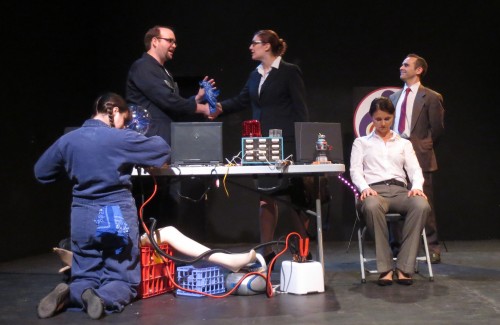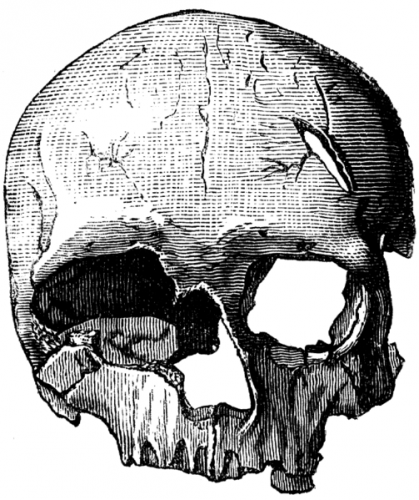 R.U.X. (Rockwell Universal Sexbots), written by Maurice Martin and directed by Sun King Davis, was first written and performed as a charity effort to raise money for HIPS (Helping Individual Prostitutes Survive); it ran as a five-part serial in Arlington’s October 2011 Hope Operas. It was rewritten as a full play for DC’s 2012 Fringe Festival, where it took the award for best comedy. The show just finished up a brief encore at Fall Fringe. While this comedy has already been widely and positively reviewed by DC theater critics, it deserves a piece that engages its rather weighty themes.
R.U.X. (Rockwell Universal Sexbots), written by Maurice Martin and directed by Sun King Davis, was first written and performed as a charity effort to raise money for HIPS (Helping Individual Prostitutes Survive); it ran as a five-part serial in Arlington’s October 2011 Hope Operas. It was rewritten as a full play for DC’s 2012 Fringe Festival, where it took the award for best comedy. The show just finished up a brief encore at Fall Fringe. While this comedy has already been widely and positively reviewed by DC theater critics, it deserves a piece that engages its rather weighty themes.
The story takes place in near-future America (similar in setting to the spate of early twenty aughts robot films such as Bicentennial Man, A.I., and I, Robot), where anthropomorphic robots have become a common consumer product. Louis Rockwell Jr. (John Tweel) has just been made acting CEO of the Rockwell Universal Carebots company, after his father (Frank Mancino) fell into a coma. Louis Jr. has a new vision that would transition the company away from producing robots designed for childcare and, instead, move it into designing robots for—you guessed it—sex. After rebranding the company “Rockwell Universal Sexbots,” he hires Dr. Callie Veru (Aubri O’Connor), a young and romantically inexperienced software expert to program the robots with the capacity to fulfill human desire. To program robots to respond to human desire, however, the characters must first understand it, and this interrogation of human desire becomes the axis on which the entire plot rotates. more...






